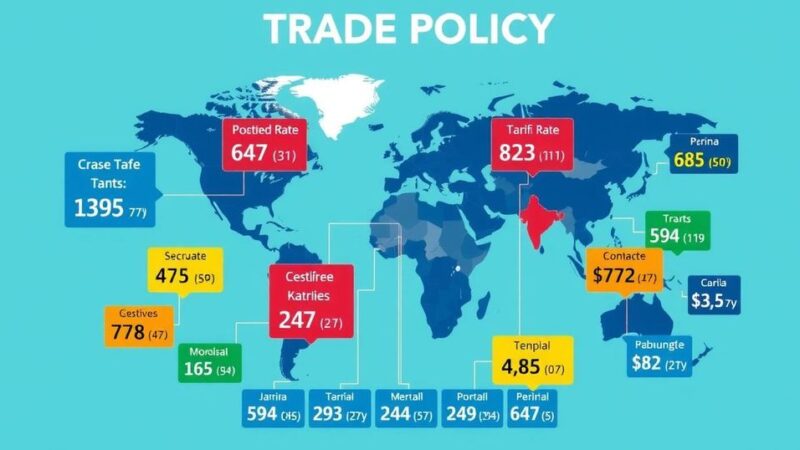A study from Universiti Malaya reveals low-income Malaysian workers must labor much longer for basic food items compared to their peers in other nations. The disparity in purchasing power is exacerbated by low wages and rising food prices, leading many households to rely on unhealthy food alternatives. The study recommends key policy interventions to improve food security and affordability in Malaysia.
A recent study conducted by the Social Wellbeing Research Centre at Universiti Malaya indicates that low-income workers in Malaysia must work significantly longer hours than their counterparts in other countries to buy basic food items. The research highlighted that food affordability is increasingly concerning for many households, primarily due to low wages, which lag considerably behind international standards.
For example, a minimum-wage worker in the Netherlands requires only four minutes of labor to purchase one litre of milk, whereas their Malaysian equivalent must labor for a staggering 58 minutes. This discrepancy extends to other essential items, demonstrating a broader issue of food accessibility within the country.
When it comes to meat, Malaysian workers must allocate 130 minutes of labor to buy one kilogram of chicken, in stark contrast to just 28 minutes for Australian workers. Additionally, to obtain one kilogram of beef, Malaysians must work for 271 minutes, compared to 45 minutes required by New Zealand workers. Similarly, more hours are spent acquiring fruits and vegetables compared to European countries.
The study notes that minimum wages in Malaysia are considerably lower than those in comparable nations, with a significant portion of the workforce earning less than two-thirds of the median wage. Unlike rural households, which often engage in subsistence farming, urban residents depend entirely on market purchases for food, making income crucial for ensuring access to nutrition.
Due to the low-wage environment, numerous households resort to cheaper but nutritionally inadequate options, such as instant noodles and fried foods. The high percentage of household income dedicated to food illustrates the severe economic pressure faced by many Malaysians.
Food inflation further threatens purchasing power, as Malaysia witnessed a 6.8% increase in food prices in 2022, affecting staples like rice and chicken. The researchers outlined three pivotal policy interventions to combat these issues: instituting a social protection floor, enhancing school feeding programmes, and automated minimum wage adjustments based on a low-wage indicator.
They recommended bolstering child benefits and supporting vulnerable populations, including older individuals and persons with disabilities, to prevent food insecurity in tough economic times. Additionally, ensuring that schoolchildren receive at least one nutritious meal daily would help ease food costs for low-income families.
Lastly, the study suggested wage reforms, proposing a structured adjustment mechanism tied to inflation, which would allow low-income workers to sustain their purchasing power amidst rising living costs. The minimum wage was set at RM1,200 from 2020 to 2023, and following public advocacy, it is set to increase to RM1,500 in 2023 and RM1,700 in 2025.
The findings from the Universiti Malaya study underscore the alarming extent to which low-wage Malaysian workers must labor to afford basic food items. With substantial portions of their income consumed by food costs, the study advocates for significant policy changes aimed at improving food affordability and worker compensation. By implementing suggested policies such as wage reforms and enhanced social protections, the government could alleviate these pressing challenges faced by many households.
Original Source: www.malaysianow.com






